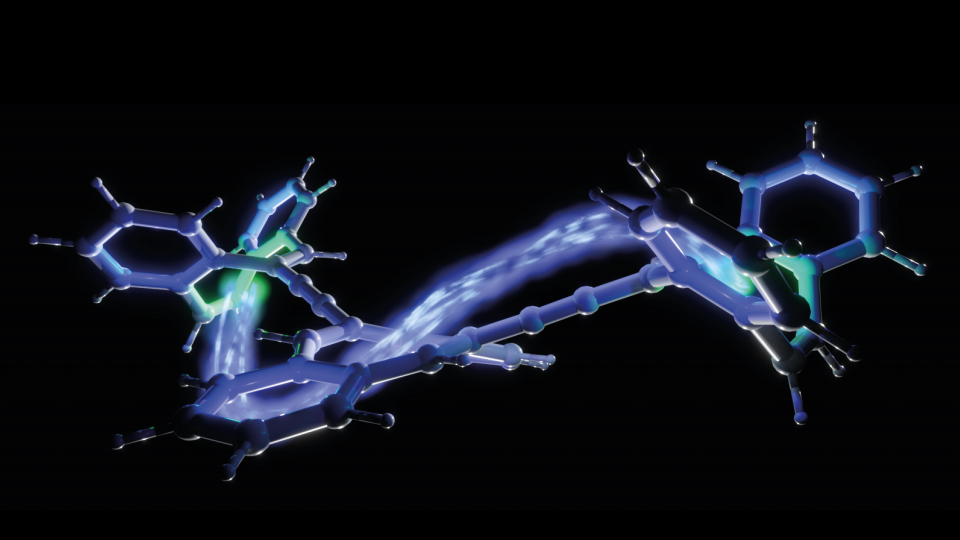
Transistors are becoming ever smaller and more energy-efficient, and now researchers at Lund University have developed a solution that continues that trend.
"We have developed a simple hydrocarbon molecule that changes shape and at the same time goes from insulating to conductive when exposed to electrical potential. The recipe was to design a so-called anti-aromatic ring in a molecule so that it becomes more robust and can both receive and emit electrons", says Daniel Strand, chemistry researcher at Lund University, in a press release.
The researchers investigated whether hydrocarbons made up of rings with eight carbon atoms could be used as transistors, and it turned out that it worked. Such a molecule is, in its basic state, cup-shaped. But when the researchers injected two electrons into the molecule, it straightened out. It also caused the molecule to go from insulating to conductive. Something that can be interpreted as a one or zero of a computer.
Because the molecules only consist of carbon and hydrogen atoms, they are also easy to produce synthetically.
So far, work is at an experimental level. Still, the researchers believe that in the future, it may be possible to develop both electrical switches and new mechanical systems at the molecular level.
"Molecules that change shape in response to electrical voltage give rise to thought-provoking possibilities. Such systems can lead to energy-efficient computer architectures and in the future also electrical machines on a molecular scale", says Daniel Strand.







